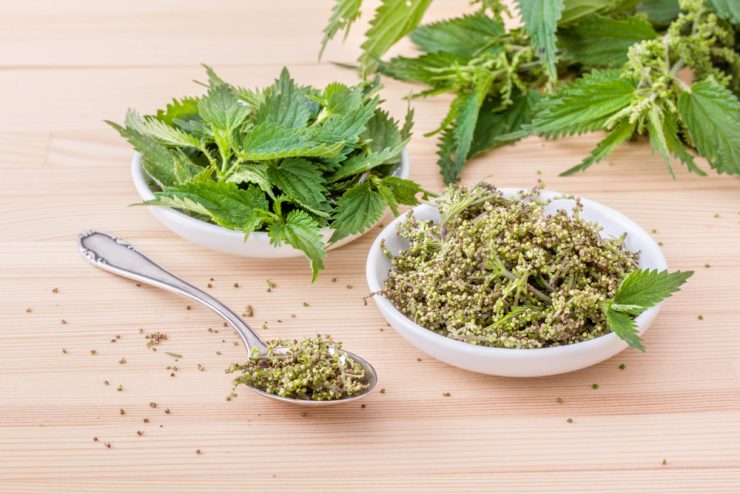Despite their nasty sting, nettle is a garden weed rich in healing properties and held in high esteem by medical herbalists.
Medical herbalist Gabriella Clarke introduces some of the health benefits of the humble nettle.
INTRODUCTION TO NETTLES
A familiar sight in the countryside, the nettle plant (urtica dioica) can grow as high as 1.5 metres. It has upright stems covered in fine hairs: each sting is actually a hollow hair stiffened by silica with a swollen base that contains the venom. The tip of this hair is brittle, which when brushed against breaks off exposing a sharp point that penetrates the skin, delivering its sting.
One of the main chemicals in the sting is histamine, a potent skin irritant. Curiously, nettle juice is actually an antidote for its own sting as is the juice of the dock leaf, which may explain why nettles can be used externally for skin rashes and rheumatic conditions.
HAY FEVER
With pollen counts the highest they have been for 10 years, many of us are sneezing and wheezing our way through the summer months. Over- the- counter antihistamines are effective but can cause side effects such as drowsiness. Nettle has been shown to help control unpleasant hay fever symptoms such as allergic rhinitis, runny, stinging eyes, and sneezing. It is thought to work by inhibiting the body’s inflammatory pathways[i].
STOMACH ULCERS
Some studies have indicated that nettle extract may help prevent and treat stomach ulcers. It also has antimicrobial properties and its analgesic properties may help reduce pain[ii].
ARTHRITIS
Nettle has been used to treat arthritis and pain since medieval times. It can be taken internally or applied as a cream or ointment to affected areas. Given that nettle is both anti-inflammatory and analgesic, nettle is a great remedy for both rheumatoid and osteo-arthritis[iii].
PROSTATE PROBLEMS
90% of men over the age of 60 will suffer from an enlarged prostate (known as benign prostatic hyperplasia). This can cause problems such as poor urine flow and having to get up several times in the night to go to the loo. Clinical trials have shown that nettle extract can help reduce the symptoms with few if any side effects[iv].
NOTE: Nettle can interact with certain medications such as blood thinners and blood pressure medications. If in doubt always consult your healthcare professional.
[i] https://www.ncbi.nlm.nih.gov/pubmed/19140159
[ii] https://www.havlikovaapoteka.cz/documents/study_antioxidant_antimicrobial_antiulcer_and_analgesic.pdf
[iii] https://www.sciencedirect.com/science/article/pii/S0014579398016226
























Add comment